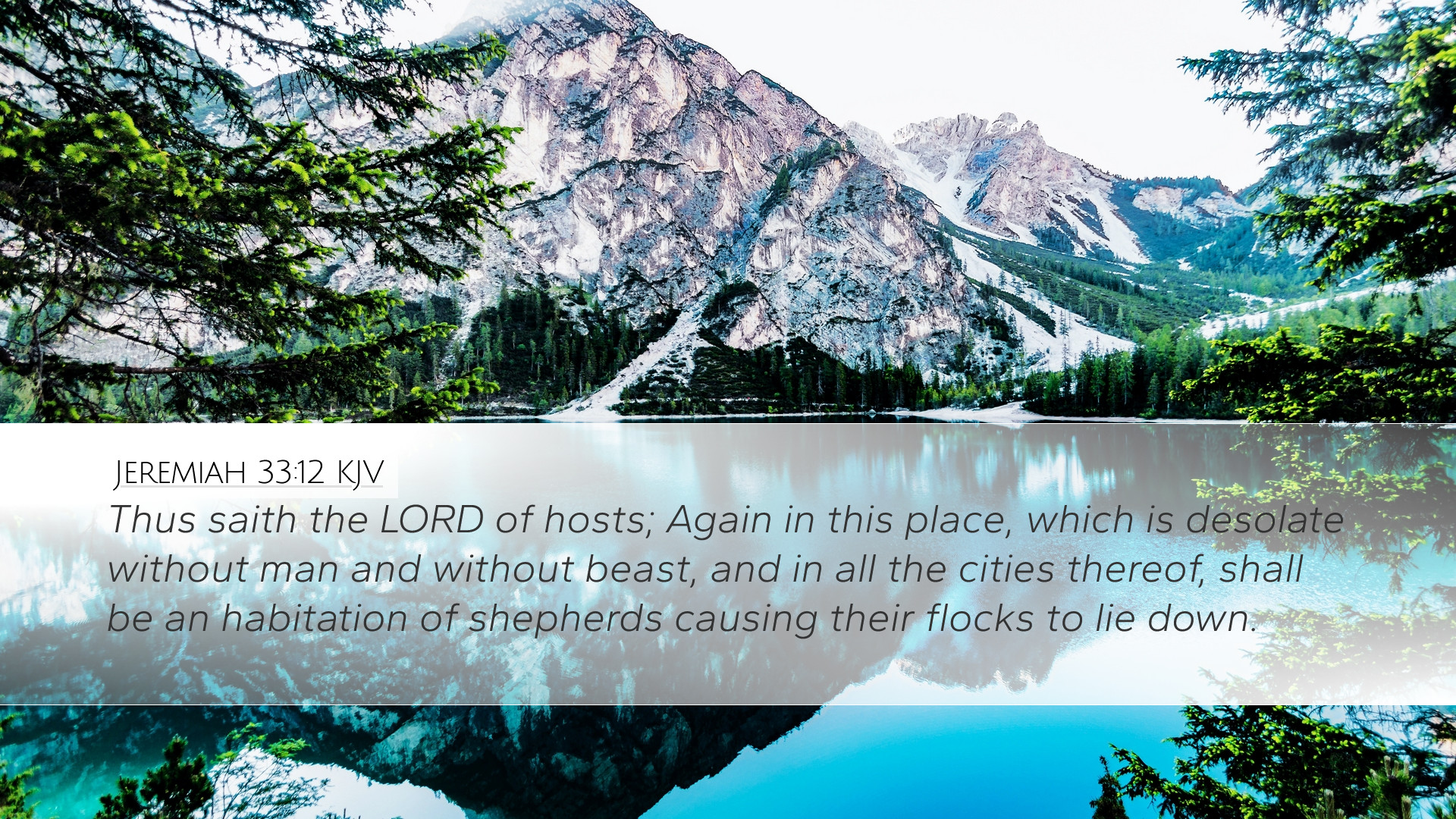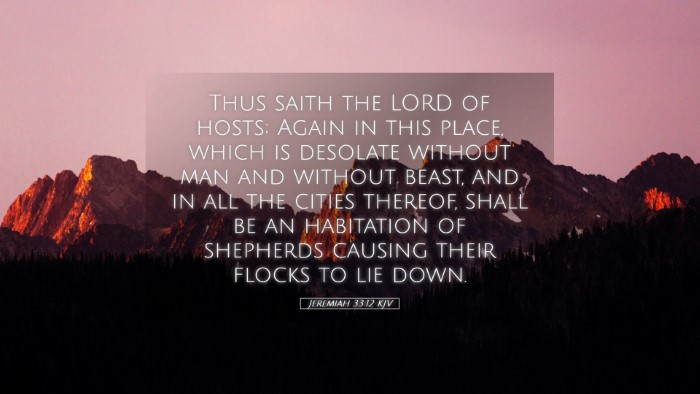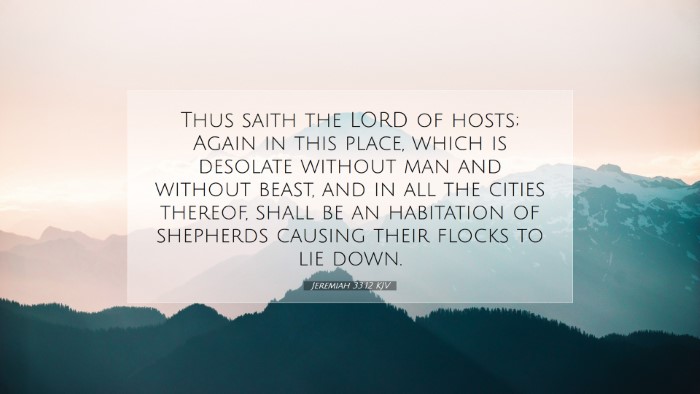Commentary on Jeremiah 33:12
Verse: "Thus saith the Lord of hosts; Again in this place, which is desolate, without man and without beast, and in all the cities thereof, shall be a habitation of shepherds causing their flocks to lie down."
Introduction
Jeremiah 33:12 brings to light a promise of restoration amidst desolation. The prophet Jeremiah, often known as the weeping prophet, reveals God's intention to revitalize a land that had fallen into despair. This commentary seeks to distill the insights of prominent public domain theologians to provide a rich understanding of the implications of this verse.
The Context of the Passage
The book of Jeremiah is segmented into prophecies of judgment and subsequent promises of hope. Jeremiah 33 occurs during a time of siege in Jerusalem, when the dire situation provoked fear and uncertainty. According to Matthew Henry, the preceding verses highlight God's commitment to restore not just the physical land but also the spiritual condition of His people. The promise references the agricultural metaphor of shepherds and flocks, symbolizing care and provision.
Theological Insights
1. God’s Sovereignty: All three commentators emphasize the sovereignty of God in bringing about this restoration. Albert Barnes underscores that despite the current state of desolation, God's authority in orchestrating future events assures believers of His continual oversight and control.
2. Hope in Despair: Jeremiah’s context is filled with hopelessness, yet, as Adam Clarke notes, the promise of shepherds signifies hope. The idea of flocks lying down reflects peace and security – a direct contrast to the present turmoil. This illustrates God's ability to transform environments of despair into places of peace, echoing the overarching theme of redemption throughout scripture.
3. Redemption and Restoration: The imagery of shepherds is significant. According to Matthew Henry, shepherds provide guidance, care, and protection to their sheep. This hints at a restoration of community and leadership. The verb “causing” points to active involvement in bringing about spiritual and physical care.
Applications for Today’s Believers
This verse serves as a profound reminder for contemporary believers of several key truths:
- Trust in God's Plans: Even when situations seem bleak, believers are called to trust in the divine plan of God, who promises restoration and hope.
- Role of Leadership: The reference to shepherds not only reflects God's pastoral care but implies responsibility on the part of spiritual leaders to guide their congregations towards peace and fulfillment.
- Community Restoration: Just as Israel was promised restoration, churches and communities today are encouraged to seek God's intervention for healing and unity, stressing collective spiritual revival.
Conclusion
Jeremiah 33:12 encapsulates a profound message of hope and future promise in the midst of desolation. The insights from Matthew Henry, Albert Barnes, and Adam Clarke collectively portray a God who is actively working towards the good of His people. For pastors, students, theologians, and Bible scholars, this verse not only offers comfort but also a charge to engage in active trust and leadership that mirrors the shepherding heart of God.
Final Thoughts
As we reflect on Jeremiah 33:12, let us remind ourselves of the transformative power of divine promise that intersects with our reality. May the desolate places in our lives be transformed into places of abundance and peace through God’s faithful shepherding.


